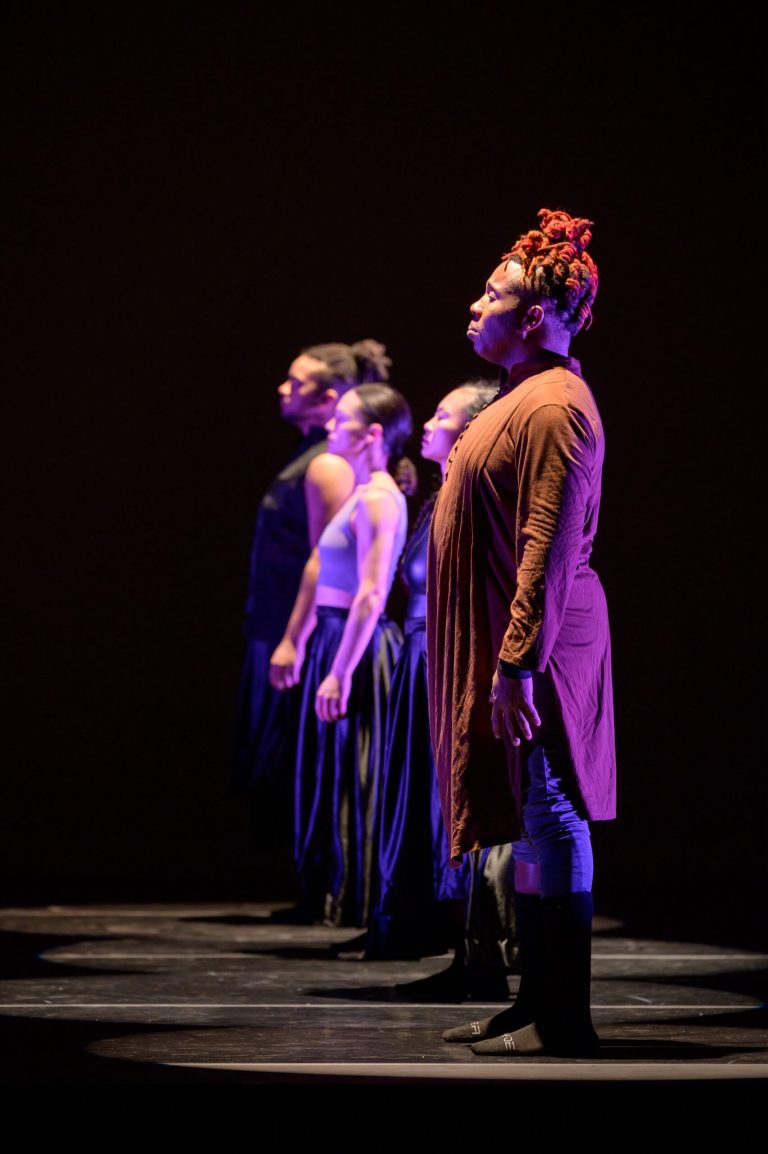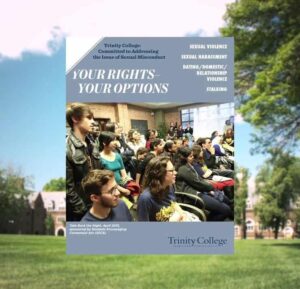Kip Lynch ’22
News Editor
Trinity has announced additional details regarding its reopening and coronavirus testing plans following an announcement earlier this month that as many as 1,700 students may return to live on the College’s Hartford campus, with 2,050 potentially returning for in-person instruction.
The announcement—made by Vice President for Student Success and Enrollment Management Joe DiChristina in an email Thursday afternoon—will entail arriving on campus August 24 “gradually over several days, in conjunction with a comprehensive COVID-19 testing protocol.” Students will also be required to sign a Community Contract, which delineates restrictions on campus life and student affairs.
As part of the rising prevalence of coronavirus cases nationwide, Trinity—under state mandate—will require that all “students receive a diagnostic test before arrival.” That test applies to students living in Connecticut and those living off-campus and in Greek Life residences.
While Trinity had previously declined to comment on whether or not Greek houses would be open to student use in the fall semester, Thursday’s communication appeared to confirm that Greek Life housing would be an option for returning students. It was not immediately clear whether or not the “one student per room” policy imposed by Trinity earlier this summer will apply to Greek Life residences.
Pre-arrival testing will be covered by the College initially, but the expense will be assessed on students at a “one-time individual cost (approximately $150)” later in the semester. Financial assistance will be available for “those who aren’t able to pay,” according to DiChristina.
The Community Contract—which imposes certain conditions as a requisite to participation in in-person instruction—includes COVID testing requirements and the wearing of masks indoors and outdoors at all times on-campus, except in individual student dorms, among other requirements.
Guests are not permitted in Residence Halls in the fall and parents and guardians must notify Campus Safety before arrival if they intend to enter the campus to pick-up or visit students. Students are also required to bring a “home health kit” to campus containing various medical supplies, including “disinfecting wipes, face coverings, small supply of disposable gloves, hand sanitizer (up to one liter, at least 60% alcohol), personal use thermometer, supply of acetaminophen, supply of ibuprofen, supply of cough drops, tissues, and standard first aid items.” Students with private bathrooms will also be responsible for sanitizing their bathroom regularly.
Greek Life and cultural houses will not be permitted to hold social events during the fall semester, though indoor gatherings of up to 10 students and outdoor gatherings of as many as 25 students may occur. Gatherings that fail to adhere to these guidelines will be “immediately dispersed,” according to the contract.
DiChristina advised that in place of in-person meetings, groups should meet “virually [sic] whenever possible.”
Trinity has also mandated that students may not “travel (leave campus or leave your off-campus housing) for non-essential reasons at any time.” The College further defined essential travel as “family emergencies, pharmacy, hospital/doctor, legal appointments, necessary groceries, etc.” It was not immediately clear what authority the College has to restrict individual movement or how this policy would be enforced.
The College did not immediately provide specific details regarding classroom assignments or how in-person learning spaces would be adjusted to adhere to CDC guidance, but did indicate that “Students must obey all occupancy restrictions as posted in each building. You must obey all classroom guidelines and directives, including cleaning your desk area/work space with the approved cleaning products provided.”
Further, the Community Contract provided additional details around the College’s quarantine expectations. If a student were to become infected and has roommates in a quad or town house, the contract indicated that students would be treated as a “family unit” and that all individuals in the residence would be required to “self-quarantine for 14 days while monitoring symptoms.”
The contract also advised that despite precautions, coronavirus infection “can result in severe illness or even death” and stressed that students can “reduce the risk by choosing to participate in remote learning.”
DiChristina also advised in his statement Thursday that all students “should self-quarantine at home for 14 days before coming to campus, avoiding travel and limiting close contact with non-family members.”
With coronavirus cases surging nationwide, DiChristina indicated that approximately “350 Trinity students” would be subject to a fourteen-day mandatory quarantine upon arrival based on their location. Those students could also present a “negative COVID-19 test result that is no more than 72 hours old” in order to avoid the quarantine. Move-in for “students from states affected by travel advisory” is scheduled for Aug. 24-25.
Further, local students from New England, New York, and New Jersey will be permitted to drop off their belongings (but not stay overnight) Aug. 16-21, student leaders will be permitted to arrive Aug. 24-25, international students will be permitted to arrive Aug. 26-28, all other students, including new and returning, will be permitted to arrive Aug. 31-Sept. 4.
The College’s testing program, provided with the Broad Institute of MIT and Harvard, will entail “frequent testing of all students in the first few weeks of the semester” and testing will then occur at a “regular cadence of screening after that.” DiChristina added that the College will “pay for the cost of this testing plan.”
Students will be tested “twice per week, and employees will be tested weekly” and, if infections remain low, testing will occur “once per week for students and every other week for employees.” Testing will occur on campus at the Ferris Athletic Center Field House, with some portions taking place “under a tent outside the building.” Students who test positive or who were in contact with those who were infected will be “evaluated and tested immediately at a location separate from the field house.”
In a separate email from Assistant Vice President for Human Resources Michelle Cabral obtained by the Tripod, Cabral indicated that the testing program for employees and faculty will be a “surveillance testing program” that will use a “viral molecular test via the PCR method. Individuals will collect their own specimen under observation at the on-campus testing center.” Results will be available within 24 hours, according to the email. Both employees and students will be tested at the Ferris site.
Cabral added that “a limited number of personnel running the testing center and operating the contact tracing program will have access to test results. In addition, the Broad Institute will report results to the CT Department of Public Health.” Cabral also indicated that the process for pre-arrival employee testing had not yet been finalized and would be released in early August.
DiChristina added that he is “grateful for your support and partnership in this work” and added that he looks “forward to seeing the campus come to life with energy.”
The Tripod contacted DiChristina after this article’s publication for comment and clarification, which was published in a separate article on Aug. 8.







+ There are no comments
Add yours